Transformative Solutions
We're harnessing our
decades of research
to target a unique cellular
pathway to kill -not just stop
the growth of- tumor cells
We're harnessing our decades of research to target a unique cellular pathway to kill -not just stop the growth of- tumor cells
Despite advances, many patients remain resistant to therapy
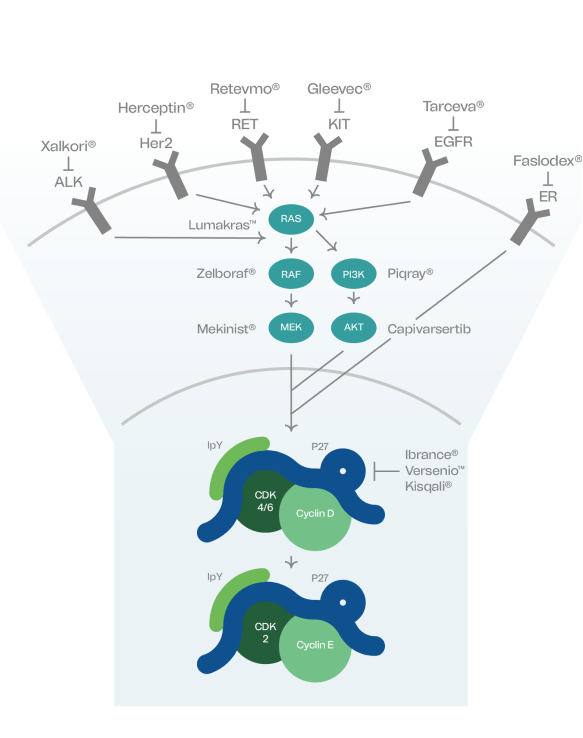
The oncogenic funnel feeds down to CDK4/6 and CDK2: signals come from outside the cell down to the motors that drive a cell to proliferate. These signals become altered during cancer progression and most of the precision oncology therapies, such as the drugs depicted on this slide, indirectly inhibit CDK4/6 and CDK2 by turning off the oncogenic funnel.
Resistance to these therapies frequently occurs when CDK4/6 and CDK2 are turned back on because of activation downstream from the precision oncology target. For example, resistance in HER2+ breast cancer being treated with Herceptin® could occur because of new mutations in the downstream players like RAS, RAF or MEK. Concarlo aims to target the bottom of the oncogenic funnel. By drugging p27 directly, which indirectly inhibits CDK4/6 and CDK2, our approach will shut down proliferation and drive patients into remission. oncogenic funnel.
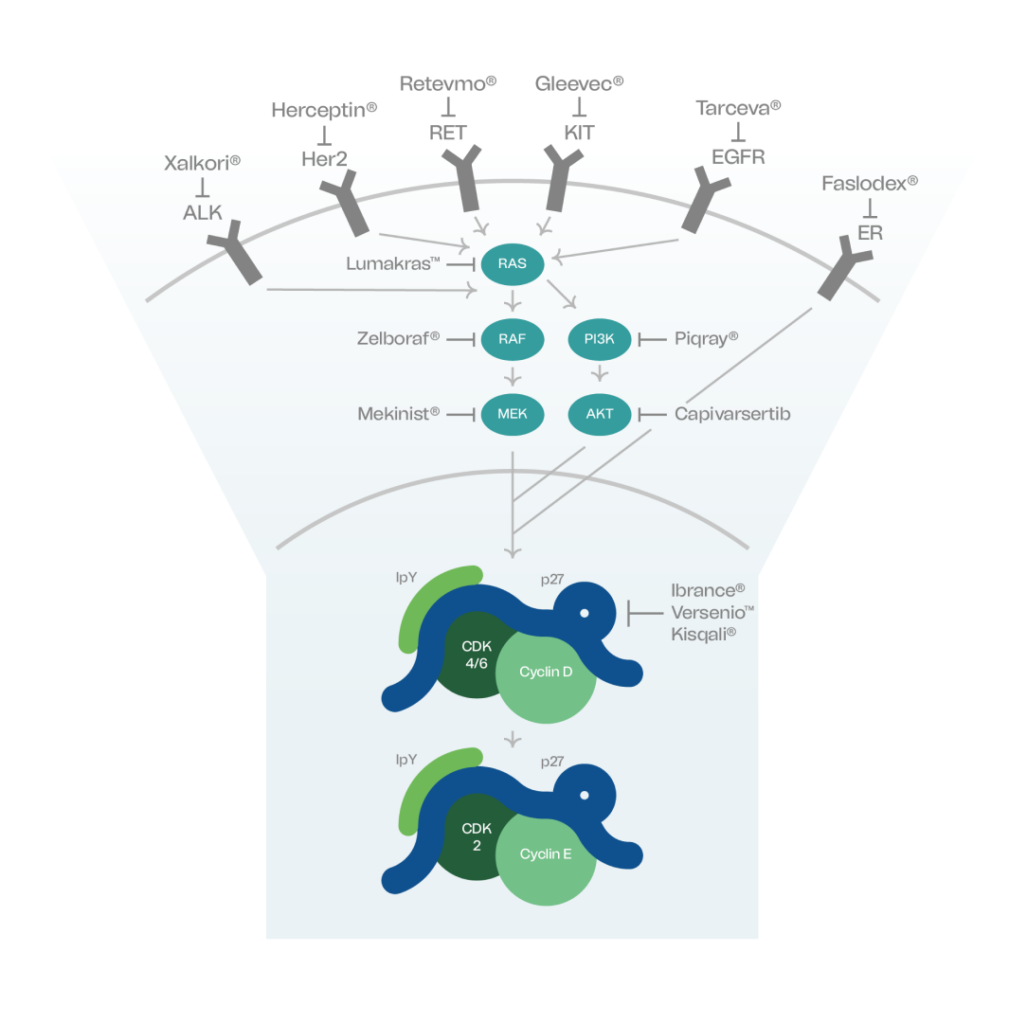
Despite advances, many patients remain resistant to therapy
The oncogenic funnel feeds down to CDK4/6 and CDK2: signals come from outside the cell down to the motors that drive a cell to proliferate. These signals become altered during cancer progression and most of the precision oncology therapies, such as the drugs depicted on this slide, indirectly inhibit CDK4/6 and CDK2 by turning off the oncogenic funnel.
Resistance to these therapies frequently occurs when CDK4/6 and CDK2 are turned back on because of activation downstream from the precision oncology target. For example, resistance in HER2+ breast cancer being treated with Herceptin® could occur because of new mutations in the downstream players like RAS, RAF or MEK. Concarlo aims to target the bottom of the oncogenic funnel. By drugging p27 directly, which indirectly inhibits CDK4/6 and CDK2, our approach will shut down proliferation and drive patients into remission.
Concarlo’s novel approach directly drugs the p27 protein which controls CDK4/6/2 activity. Concarlo is leveraging its deep understanding of this pathway to develop new treatments for a wide range of advanced and drug-resistant cancers.

Our Solution
Concarlo’s Approach
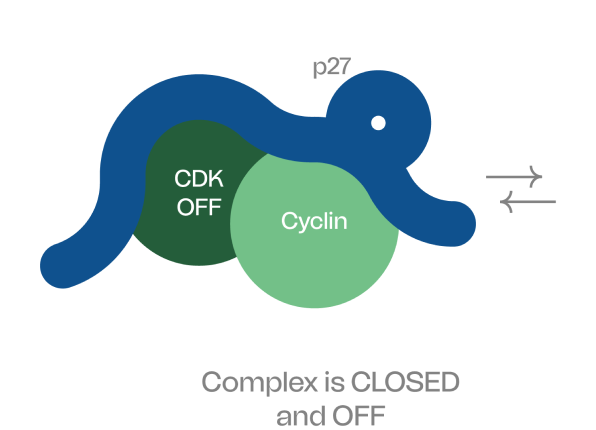
01.
We target a unique cellular pathway in order to kill—not just stop the growth of— tumor cells.
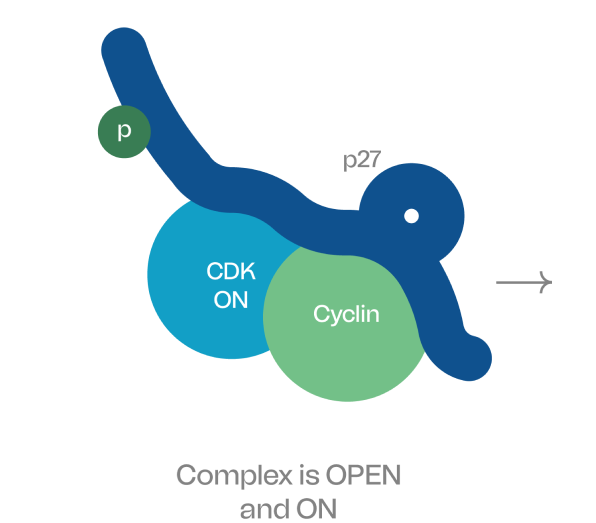
02.
We use p27 — a key
“ON-OFF” switch that modulates the activities of critical proteins involved in many cancers: CDK4, CDK6, and CDK2.
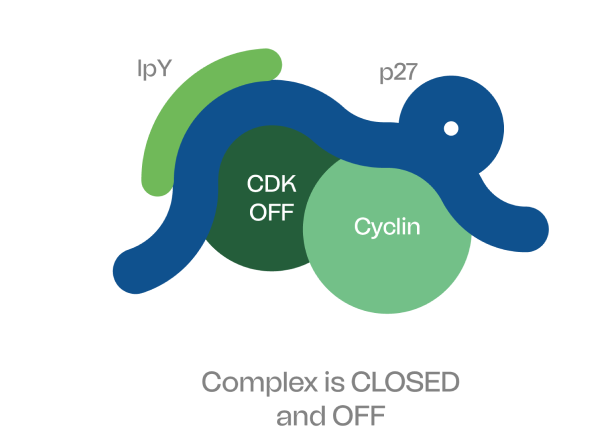
03.
We avoid both the problem of resistance and toxicity by targeting p27 directly to indirectly inhibit CDK4/6 and CDK2.
Drug Resistance
p27 and CDK4/6 and CDK2 drive cancer progression and drug resistance in numerous tumor types

Our first tumor indication is drug-resistant metastatic breast cancer. Over 600,000 women die from breast cancer each year globally. And Concarlo is designing new, less toxic alternatives to provide choices for our patients.

Despite advances in precision medicine, other tumor types, such as ovarian, non-small lung cancer, melanoma, have larger drug-resistant populations annually, and Concarlo’s approach, focusing on p27, should tackle this issue as well.
